An INFEMIT community conversation
Continuing the conversation begun at the Stott-Bediako Forum on Jesus and Empire: Christian Witness in the Context of Power, several members of the INFEMIT community met with Zac Niringiye to explore and lament how much of dominant Christianity today embodies empire in its vision of domination, conquest, and violence. Zac’s original presentation to the Forum is titled: “Christianity as a Narrative of the Deception of Empire: Whither the promise of justice and love, held out in the Gospel of Jesus of Nazareth?” You can watch the presentation here.
Listen to the conversation with Zac, or read the excerpt below.
Click to listen or find the episode on your preferred podcast platform here.
Conversation Excerpt
Ruth: What would you propose as a gospel response in the midst of all of this [dominant forms of Christianity characterized by domination and empire]?
Zac: I think that before we go to the proposition, and I thankfully would argue that it’s really the burden is not so much on me to propose – I think that this is a community action. However, I think that we need to do much deeper diagnosis, much deeper, to be able to understand why that is the case. Why it is that we are in this place. So, the place to go in my argument is to understand the patterns of power, or the power relations imagined, envisioned in these forms of Christianity that we see. And it is evident that those patterns of power are built on a triad of fear, guilt, and shame – fear, guilt, and shame.
In other words, my invitation is for us to do the hard work of lament. The valley and the process of lament challenge us to think more deeply: why are we here? How did we get here? And I am suggesting here that we need to think deeply around, question, interrogate the patterns of power – the power relations imagined, a world that is imagined within these Christianities.,,
And readings – readings engaging with the Scriptures, with the story of the gospel in the person of Jesus of Nazareth, it’s clear to me that the three things you see that are clearly not just a contrast, a complete subversion of fear, guilt, and shame is love, shalom… and justice. Love, shalom, and justice… And it’s all there in the gospel. It’s all there in the Kingdom come.
Now, we also, in asking ourselves how we are here, it’s also how we have read the Scriptures, and the mindset with which we come to the Scriptures… How is it that for decades in South Africa the dominant forms of Christianity, missionary Christianity in South Africa, the readings of the gospel justified Apartheid? How is it? And I think I would say that… we must interrogate ways in which we have read the Scriptures, engaged with the Scriptures…
If you take the Scriptures, you will be able to see that there is a different story – a different story that emerges. Particularly if you read the scriptures through the eyes of Jesus of Nazareth. And a helpful place to go in grappling with this I have suggested is Luke Ch. 24. The way Jesus challenges and encourages Cleopas and his friend to read the Scriptures from the perspective of the cross – the victory in the cross. The cross itself subverts violence, takes violence, and the resurrection of course is the story. And I would say that the cross is the embodiment of love, shalom, justice in ways in which it’s powerful.
So, yes, that therefore is an invitation to renunciation. Before we propose, I think that there is a renunciation. And it is not just a repentance. There is actually a renunciation. There is a renunciation of powers or patterns of power. It goes deeper. And the other reason I love the word “renunciation” rather than “repentance” is the caricature around the spiritualization around the term “repentance.” I think that we are up to something that’s more profound as we read, as we encounter Jesus with his friends on the road to Emmaus. So I am suggesting that we possibly grapple with the story of Jesus the way in which Cleopas and his friend do and find the answer in the story of the cross and the resurrection – the suffering Christ who, yes, embodies everything love, shalom, and justice.
But yes, the first thing I really argue for is the season, the period of lament. I am suggesting we have no hope. And here it hits us hard that what we are and imagine the world to be in the frames of Christianity as we know it is actually simply one-and-the-same as the way in which Cleopas and the disciples imagined the savior. They imagined him within the mode of a conqueror, one who dominates, one who exercises power through violence. And here he is, it’s the cross that is the genius of this story of the gospel.
The views and opinions expressed in these interviews are those of the interviewee and do not necessarily reflect an official position of INFEMIT. We seek to foster reflection through conversation, and we ask you to be respectful and constructive in your comments.
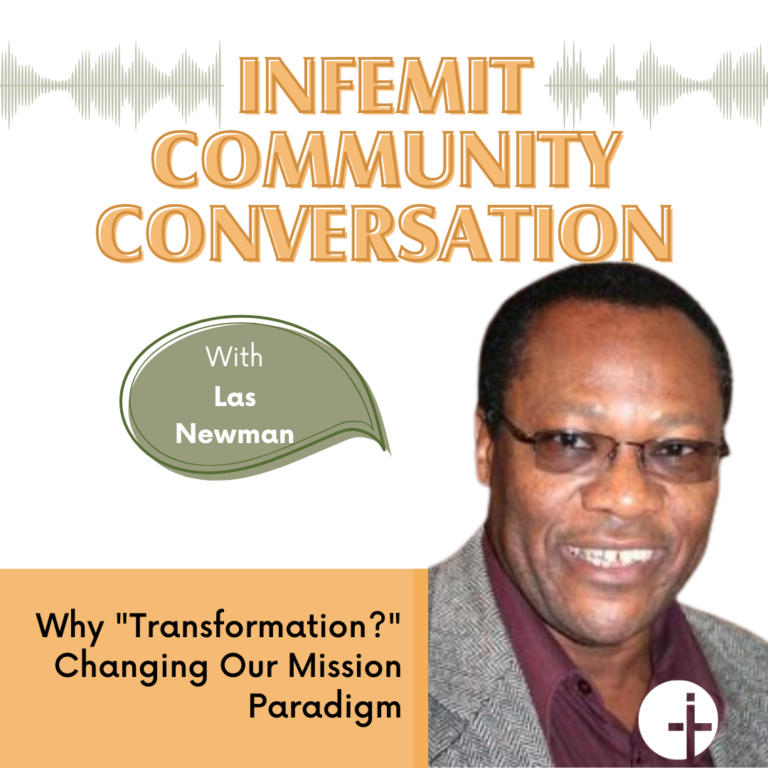
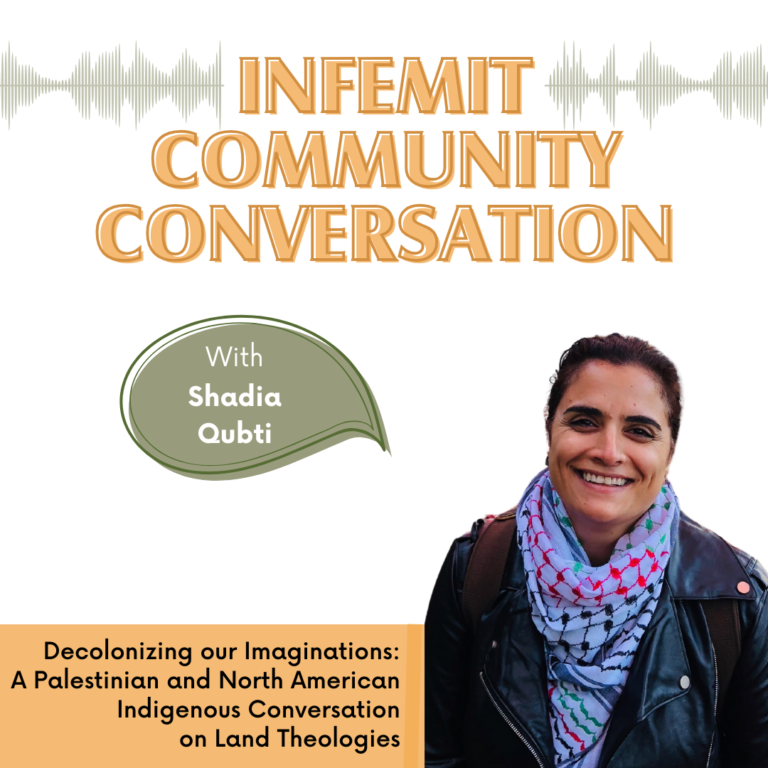
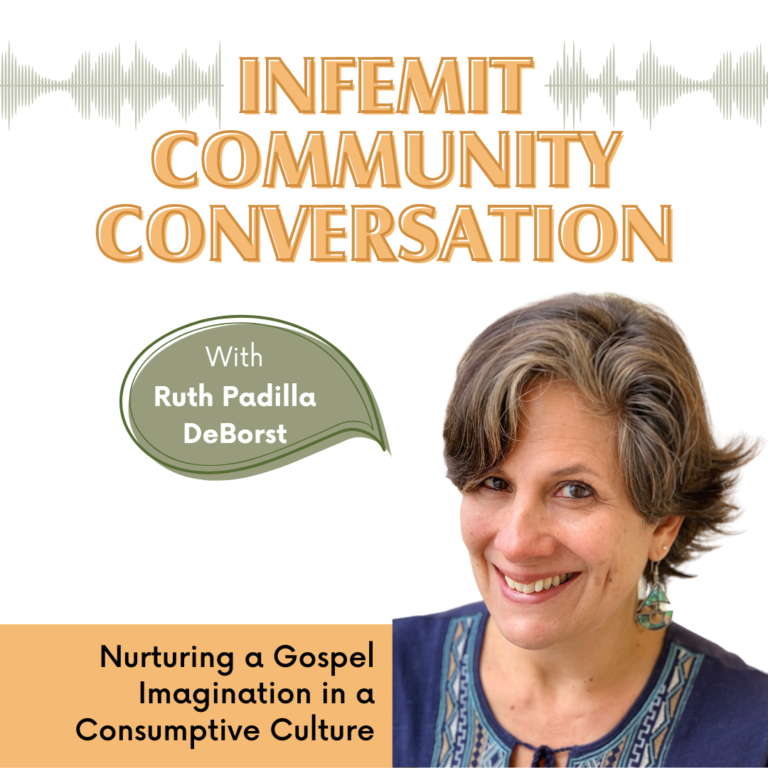
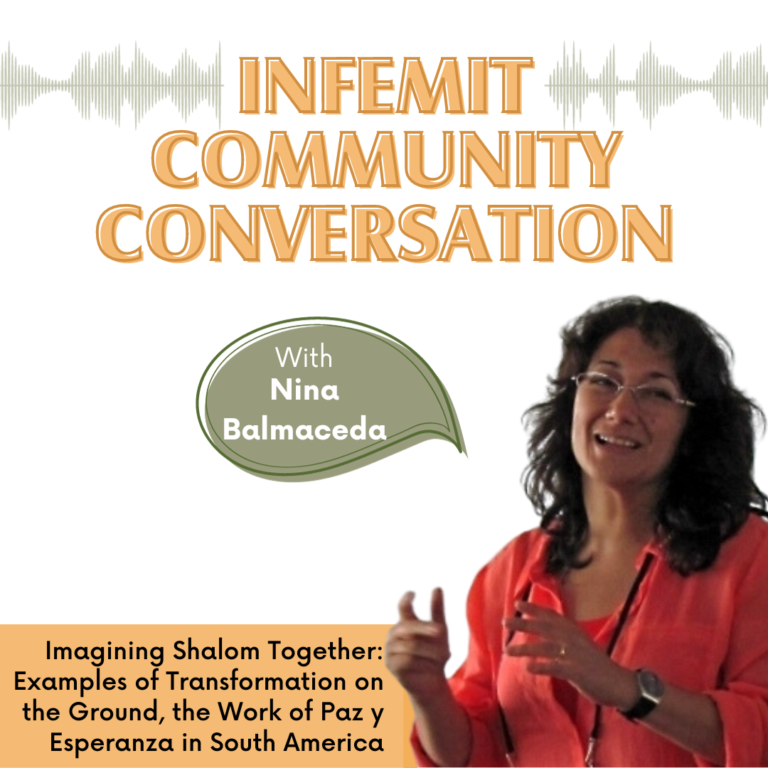
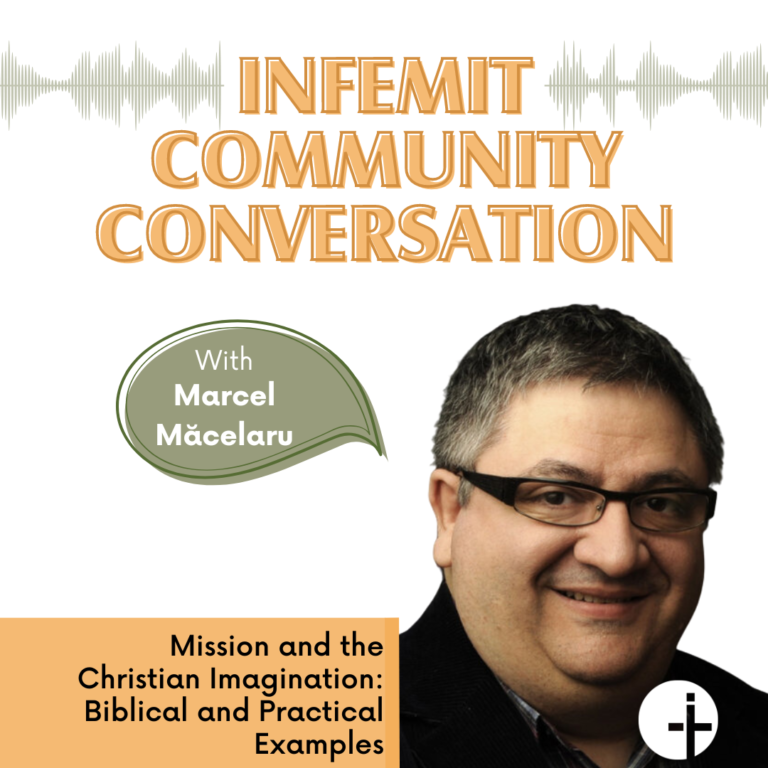
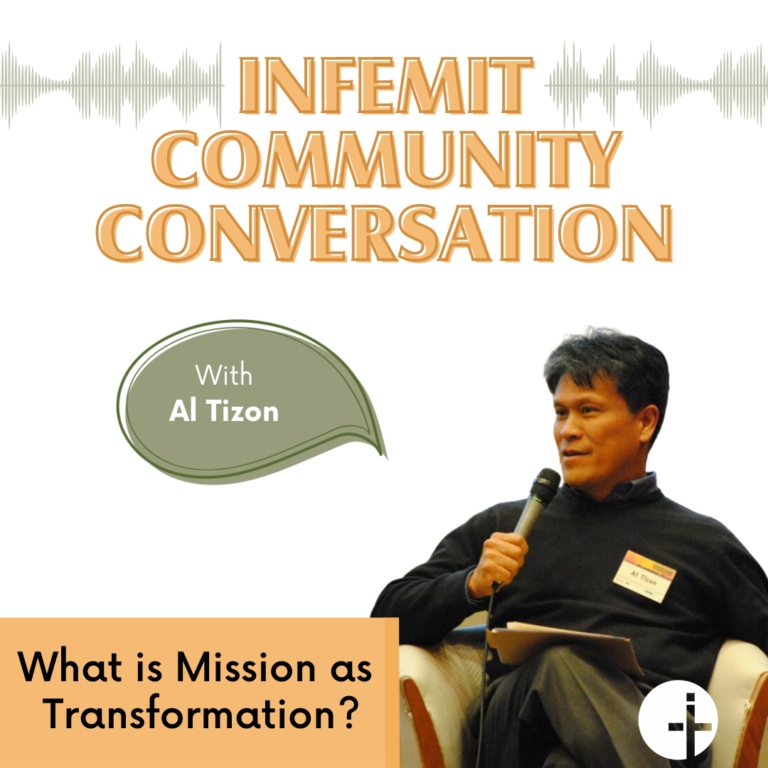
Leave a Reply